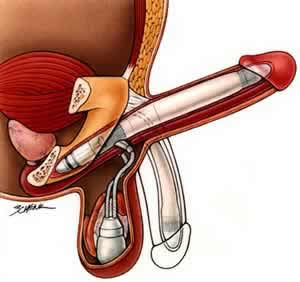Last Updated on: January 19, 2024
Edited By: Alfred
For this study, 91 teenagers and their eating habits were studied. The average age of most of these children was 17 years, among them 37 had average weight and 54 of them were obese. The body mass index of the obese teens was found to be 39 and their average weight measured to 300 pounds. As a part of the study, all the teens had to undergo an MRI scan (magnetic resonance imaging). They were also mad to undertake many cognitive tests which aimed at studying the functioning and performance of the frontal lobe of the brain. The frontal lobe is at the anterior side of the brain (below the temple). This part controls the planning, behavior and self-assessment. In case of trauma, the person can have decreased impulse control.
Finding
The finding (eating habit) showed that obese teens were more spontaneous and impulsive while eating. The MRI scan also reported that these children had a smaller orbitofrontal cortex and their performance in the cognitive tests was also poor as compared to the other children who were a part of this study. The fact that all the children belonged to the same strata of the society, ruled out the chances of their economic status playing a part their eating habit. However, the result only hints at an association and not as a cause ‘ effect link. It does not prove that obesity can result in smaller frontal lobe or vice versa. It was also found that though obese children were not diabetic, they also had increased level of fasting insulin which could harm the brain. Insulin is a hormone that increases the absorption of glucose from the blood. As obese people are insulin resistant, they have to produce more of it to keep the glucose level normal.

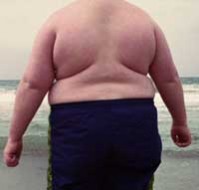
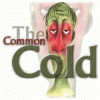
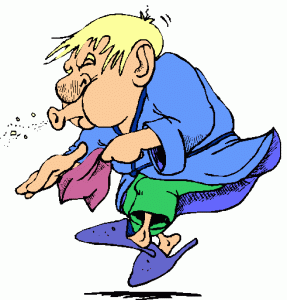
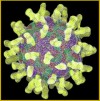

 Mode of infection-
Mode of infection- Mode of infection-
Mode of infection- Mortality-
Mortality- Mortality ‘
Mortality ‘ Symptoms-
Symptoms- Symptoms
Symptoms

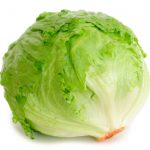 Lettuce– Lettuce consists of lutein and is rich in Vitamins. Lettuce is not only good for the eyes but for all those who wish to burn the calories, it is the best option.
Lettuce– Lettuce consists of lutein and is rich in Vitamins. Lettuce is not only good for the eyes but for all those who wish to burn the calories, it is the best option. 
 Parsley– Parsley is rich in Vitamin C. It prevents bad breath. Use of parsley in salad is the best therapy for people suffering with kidney stones. It also clears ones stomach and helps in getting rid of the problems related to urinary infection. It also treats cold and having rich source of boron and fluoride it may also help those suffering from osteoporosis.
Parsley– Parsley is rich in Vitamin C. It prevents bad breath. Use of parsley in salad is the best therapy for people suffering with kidney stones. It also clears ones stomach and helps in getting rid of the problems related to urinary infection. It also treats cold and having rich source of boron and fluoride it may also help those suffering from osteoporosis.  Swiss Chard– Swiss chard also known as Chard consists of Vitamin A, C, iron and protein. It promotes bone health. The anti oxidant property in it fights diseases related to lung, cancer and osteoporosis, by increasing one’s immunity.
Swiss Chard– Swiss chard also known as Chard consists of Vitamin A, C, iron and protein. It promotes bone health. The anti oxidant property in it fights diseases related to lung, cancer and osteoporosis, by increasing one’s immunity.  Cherry– Cherry not only makes a salad tasty but it also relieves muscle and joint pain that may ensue in many people due to running and walking. Cherry contains Vitamin A, Vitamin C. It helps in fighting diseases like Cancer, relieves headaches and prevents from heart diseases.
Cherry– Cherry not only makes a salad tasty but it also relieves muscle and joint pain that may ensue in many people due to running and walking. Cherry contains Vitamin A, Vitamin C. It helps in fighting diseases like Cancer, relieves headaches and prevents from heart diseases.  Papaya– Papaya in salad not only makes it colorful and tasty but also nutritional. Papaya consists of carotene and vitamin C that prevents diabetes. It also cures allergies and problems of indigestion. It also lowers cholesterol level in the body that may lead to heart ailments.
Papaya– Papaya in salad not only makes it colorful and tasty but also nutritional. Papaya consists of carotene and vitamin C that prevents diabetes. It also cures allergies and problems of indigestion. It also lowers cholesterol level in the body that may lead to heart ailments.  Strawberries– The most popular and nutritional berry, this red berry is an antioxidant that increases ones immunity to fight with diseases. It also averts leukemia. It prevents from tumors.
Strawberries– The most popular and nutritional berry, this red berry is an antioxidant that increases ones immunity to fight with diseases. It also averts leukemia. It prevents from tumors.  Blueberry– It consists of Vitamin A, B and C. It also consists of potassium and magnesium, that reduces cholesterol levels and reduces the fat from the body. It also lessens sodium level in body, thus curbing from diseases like diabetes and heart related ailments from occurring.
Blueberry– It consists of Vitamin A, B and C. It also consists of potassium and magnesium, that reduces cholesterol levels and reduces the fat from the body. It also lessens sodium level in body, thus curbing from diseases like diabetes and heart related ailments from occurring.  Fig– Fig just eaten raw or put in a salad with other fruits and vegetables completes the nutritious bandwagon. ??Fig consists if minerals that control hypertension and high blood pressure. ??It helps in reducing weight and is the best for people suffering with breast cancer and diabetes. All those who wish to taste the naturally grown fruits and vegetables for your salad then spring is the right season to enjoy those delicious salads with the seasonal fruits and vegetables.
Fig– Fig just eaten raw or put in a salad with other fruits and vegetables completes the nutritious bandwagon. ??Fig consists if minerals that control hypertension and high blood pressure. ??It helps in reducing weight and is the best for people suffering with breast cancer and diabetes. All those who wish to taste the naturally grown fruits and vegetables for your salad then spring is the right season to enjoy those delicious salads with the seasonal fruits and vegetables.